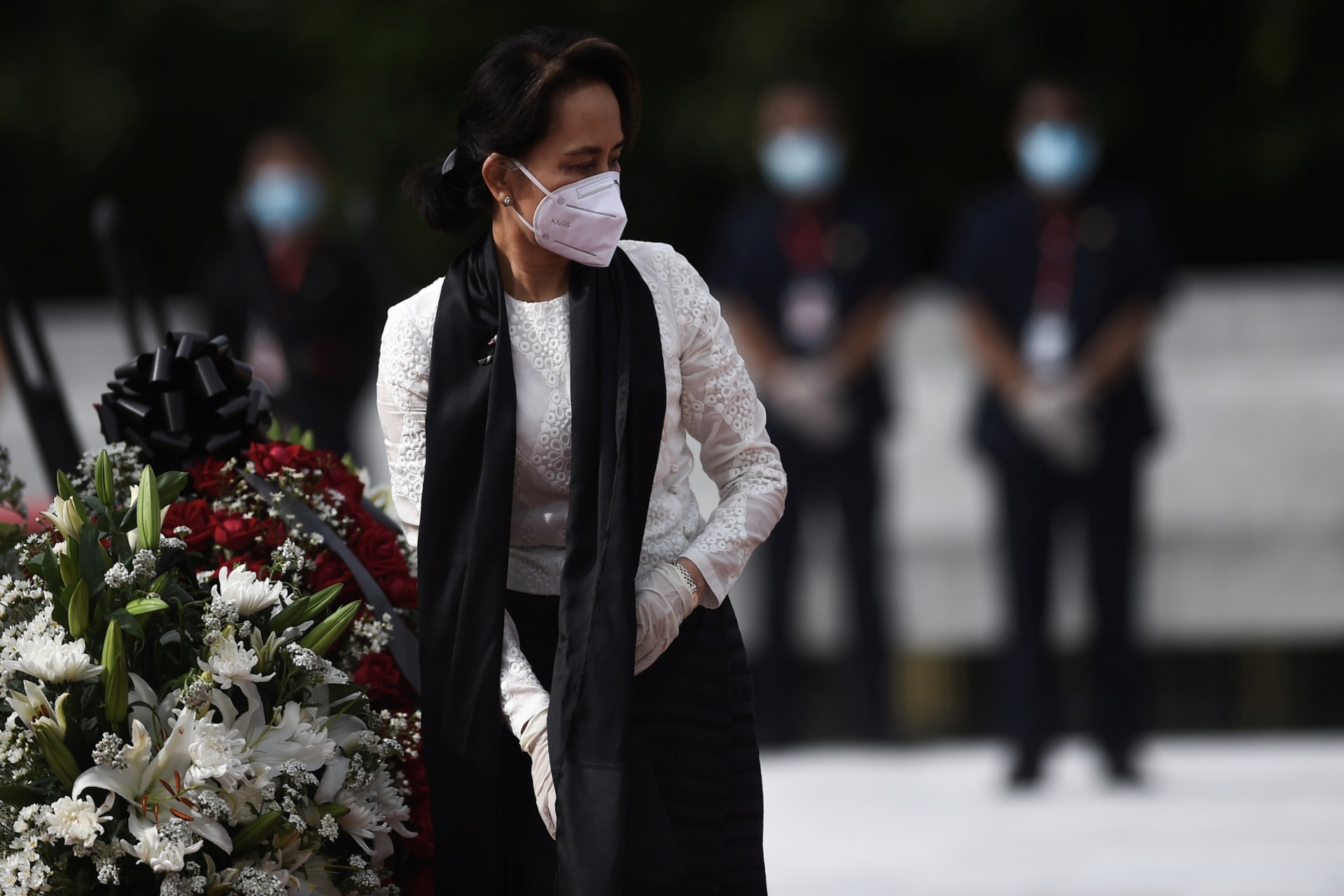COVID-19 Won’t Stop Myanmar From Plowing Ahead With a Flawed Election
Originally published at World Politics Review

By experts and staff
- Published
Experts
![]() By Joshua KurlantzickSenior Fellow for Southeast Asia and South Asia
By Joshua KurlantzickSenior Fellow for Southeast Asia and South Asia
Myanmar is set to hold general elections next month, for the second time since the end of military rule in 2011. The last election, in 2015, ushered Aung San Suu Kyi’s National League for Democracy into power with a landslide victory. Since then, the NLD has had a mixed economic record, and Suu Kyi, now the country’s de facto leader, has gone from human rights icon to international pariah for defending the army’s brutal persecution of the Rohingya, a predominantly Muslim ethnic minority concentrated in western Myanmar.
More recently, the government has mismanaged its response to the COVID-19 pandemic, and Myanmar now has more cases and deaths than any other mainland Southeast Asian country. Still, the NLD remains popular among the mostly Buddhist ethnic majority group, the Bamar, and will almost certainly retain control of both houses of the legislature, as well as many state assemblies.
Predictable top-line results aside, the elections still raise several important questions: Can Myanmar even hold a safe vote amid the pandemic, with the government imposing lockdowns in major cities like Yangon, its largest population center, and some other areas? Will the NLD lose some ground among ethnic minority voters, many of whom are increasingly dissatisfied with the party? Perhaps most importantly, will the NLD’s victory bring progress or retrenchment in Myanmar’s democracy? After all, the government is creating a climate of repression that, according to Human Rights Watch, makes the Nov. 8 election “fundamentally flawed.” Problems include discrimination against minority voters like the Rohingya, stepped-up prosecutions of government opponents and media favoritism for the ruling party.
The coronavirus isn’t helping matters. For months, Myanmar avoided a direct hit from the pandemic, even though the government did little initially to prepare the country. Myanmar seemed to be lucky, and some researchers even speculated that countries in the Mekong River basin enjoyed a natural immunity to the virus, given initial low numbers in Myanmar, Thailand, Cambodia, Laos and Vietnam. Yet in recent weeks, Myanmar has faced a rising wave of COVID-19 cases, posting a record 2,000 cases during a single day in October. Opposition parties, and some public health experts, say that the government cannot hold a safe and fair election in this environment.
But Suu Kyi and the NLD, knowing they hold a commanding advantage with most of the population, have vowed to press forward with the vote. Some Myanmar citizens have already started voting from abroad.
Even if Myanmar gets its outbreak under control by early November—a big if—it suffers from a shortage of hospital beds, and has some of the worst public health infrastructure in the world. Without the ability to expand absentee balloting or effectively enforce social distancing at polling places, the way South Korea did in its parliamentary elections earlier this year, Myanmar’s polls could further spread the virus. The government’s management of the recent spike in cases does not inspire confidence; for instance, it has failed to mitigate the lockdown’s impact on food insecurity in the country’s biggest city, Yangon.
Despite the criticism over its handling of COVID-19, the NLD-led government remains genuinely popular among the Bamar, mainly due to the party’s history as Myanmar’s main pro-democracy opposition, and also because many voters see it as the only bulwark against the still-powerful military. Global condemnation of Myanmar’s government for its human rights abuses against the Rohingya, which the United Nations’ human rights chief called a “textbook example of ethnic cleansing,” has hardly dented Suu Kyi’s support among the ethnic majority. In fact, the Nobel Peace Prize recipient may have actually rallied Bamar support with her nationalistic defense of the army’s actions against charges of genocide at the International Court of Justice last year.
Simply put, there is no other national party with a grassroots organization and countrywide appeal to match the NLD. The military-backed Union Solidarity and Development Party has only modest national backing, and the roughly 90 other smaller parties in the country have mostly regional bases of support, or none at all. With rallies and other traditional campaign activities curtailed due to the pandemic, and parties left to campaign mostly online, the NLD’s universal name recognition and massive social media presence gives it a leg up on its opponents. Unsurprisingly, the NLD has also ramped up pork barrel promises as Election Day approaches.
The NLD’s main message for the election—that it needs another landslide victory, like its win in 2015, to push forward reforms that could limit the military’s power—appeals to many voters. Indeed, the next few years—while the 75-year-old Suu Kyi remains healthy and in charge of the party—are probably its best shot to follow through on that promise. If it wins big, the NLD is also likely to put renewed effort into peace talks with the many insurgent groups that are fighting for autonomy for their ethnic groups.
A handful of ethnic militias signed a nationwide cease-fire in 2015, but there have been widespread clashes in Rakhine state and other regions during Suu Kyi’s time in office. The major peace conferences she has been trying to regularly organize with some of the insurgents have become increasingly stilted and unproductive. Still, the NLD will likely try to use its mandate from a big election win to seek a breakthrough in the peace process.
Even with all of its built-in advantages, the NLD has allowed the election to be held in an unfair climate, even when one takes the danger of COVID-19 out of the equation. Last month, a U.N. human rights investigator slammed the Myanmar government at the Human Rights Council for making no effort to ensure that ethnic Rohingya, of whom roughly a million are internally displaced in Myanmar or living in refugee camps across the border in Bangladesh, will be able participate. The government also has cut off 3G and 4G internet services in Rakhine, making it even harder for people there to learn about the election and vote. Conflict in Rakhine and other states home to insurgent groups will also complicate voting, preventing people in many parts of these regions from casting a ballot. Indeed, the government has canceled the election in parts of Rakhine, Kachin, Mon and Shan states, among other areas. The government also has blocked several Rohingya candidates from running, and has made it difficult for many Rohingya to prove they are Myanmar citizens and eligible to vote.
Beyond disenfranchisement of the Rohingya, the country’s election commission has censored some parties’ speeches, and even banned the country’s largest election monitoring group, the People’s Alliance for Credible Elections, from observing the vote—reportedly for “receiving assistance from international organizations without being officially registered.” The organization had monitored the last three elections in Myanmar. International election observers will also have a hard time due to restrictions on travel to Myanmar and other public health measures. Moreover, the government has effectively limited journalists’ ability to report on any irregularities by classifying them as nonessential workers. State-backed newspapers have stayed in operation, while many independent media outlets have not, as Human Rights Watch notes—another advantage for the ruling party.
Why has the NLD, once a standard-bearer for democracy, allowed the election to move forward in such a restrictive environment? The party’s leadership clearly is less committed to robust democracy than it seemed when it was an opposition movement. And the NLD may know that, while it is not challenged as a national party, it probably would perform relatively poorly in Rakhine and other areas home to ethnic minorities—the same places where voters are being disenfranchised, and where the government has made little headway toward peace. While she publicly claims that election integrity is paramount to her, Suu Kyi appears willing to tolerate a voting process in which the deck is stacked in her favor.
